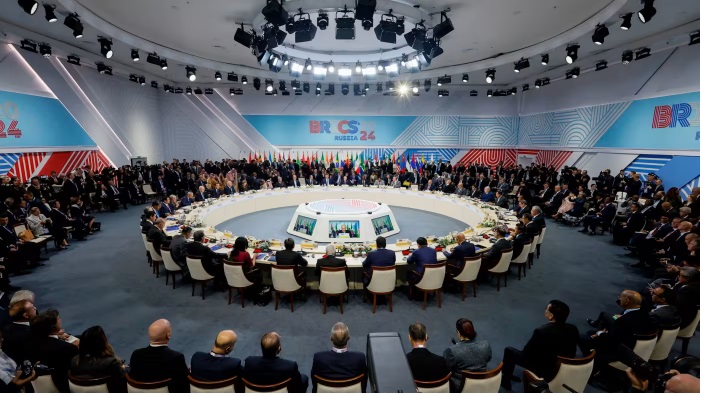Trump warns BRICS nations of a 100% tariff if they pursue replacing the dollar.

US President-elect Donald Trump has heightened tensions with the BRICS bloc by threatening to impose 100% tariffs on imports from member nations if they move forward with plans to create a new currency to challenge the US dollar. In a statement shared on Truth Social on Saturday, November 30, Trump declared, “The idea that the BRICS Countries are trying to move away from the Dollar while we stand by and watch is OVER.”
The BRICS bloc, originally comprising Brazil, Russia, India, China, and South Africa, recently expanded to include Iran, Saudi Arabia, the UAE, Argentina, Egypt, and Ethiopia. Some members, notably Russia and China, have pushed for a BRICS-backed alternative to the US dollar as a global reserve currency. Trump issued a stark warning, stating, “We demand a commitment from these countries that they will not create a BRICS Currency or back any other currency to replace the mighty U.S. Dollar. Otherwise, they will face 100% tariffs and lose access to the great U.S. economy.”
The threat aligns with Trump’s broader push for aggressive trade policies. Recently, he has proposed imposing 25% tariffs on imports from Canada and Mexico and an additional 10% on Chinese goods, citing concerns like illegal immigration and drug trafficking. These moves have already sparked diplomatic efforts, with Canadian Prime Minister Justin Trudeau visiting Trump at Mar-a-Lago to discuss the situation. BRICS nations have long criticized the dominance of the US dollar in global trade, with Russian President Vladimir Putin accusing the West of "weaponizing" the currency. During an October BRICS summit, Putin argued that US sanctions have eroded trust in the dollar, while members discussed reducing dependence on Western financial systems and considered a potential BRICS currency.
Trump’s tariff threats reflect his assertive trade policies, which played a key role in his election campaign. As he prepares to take office, the global economic community is closely monitoring whether his actions will follow through and how the BRICS bloc and other nations will respond.